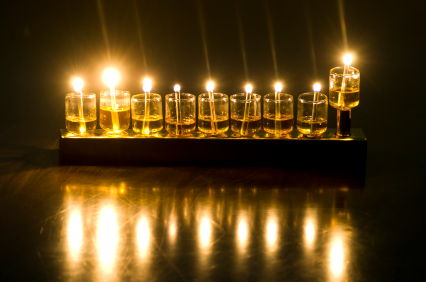
Three NLE Morasha Syllabus Shiurim on Chanukah
Chanukah is very much in vogue today, and not just because it provides a convenient excuse to give presents during “the holiday season.” Its celebration of the miraculous Jewish victory over the Greek challenge to Judaism fits the popular mold of beating the odds, the underdog having his day, and religious freedom overriding political tyranny. But there is much more to the holiday than many of us are aware.
Our Sages refer to the brief period of encounter with the ancient Greeks as “the Greek exile” even though the Jewish people were not banished from their land at the time. The exile was of a spiritual nature, as the very legacy of the Jewish people was in threat of being lost forever. Chanukah tells the story of the miraculous recovery of Jewish idealism through the dedication and commitment of our ancestors to our ancient faith.
In the first NLE Morasha class on Chanukah we will explore the history of Chanukah and the eternal ideological conflict that is at its root.
The second NLE Morasha class on Chanukah addresses the nature, symbolism, and implications of the Chanukah miracles.
The third NLE Morasha shiur seeks to understand why God wanted the Temple’s rededication to be accomplished through a miracle in the lighting of the Menorah. The class also discusses what the Menorah symbolizes and why and how we commemorate Chanukah today.
NLE Thinking Gemara Shiur on Chanukah
Jews worldwide light Chanukah candles for eight straight nights, starting on the 25th of the Hebrew month of Kislev. Common practice is to light one candle on the first night of Chanukah, and to add an extra candle on each of the subsequent nights. In order to appreciate the depth of this mitzvah, we must explore its Talmudic roots.
In the NLE Thinking Gemara shiur on Chanukah, we will examine the mitzvah of lighting Chanukah candles under a microscope, and look at a key passage in the Talmud that reveals the three levels of its performance. Through studying commentaries on the passage, we will uncover two major conceptual discussions that began in the twelfth century and continue to the present day.



















